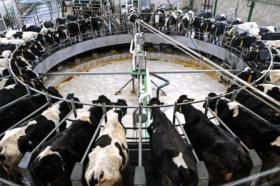For those unfamiliar with Hedges, he has spent nearly two decades as a foreign correspondent in Central America, the Middle East, Africa and the Balkans. He has reported from more than 50 countries and has worked for The Christian Science Monitor, National Public Radio, The Dallas Morning News and The New York Times, for which he was a foreign correspondent for 15 years.
This essay hit me right between the eyes:
Saving the Planet, One Meal at a Time By Chris Hedges November 10, 2014
Here’s a sample:
My attitude toward becoming a vegan was similar to Augustine’s attitude toward becoming celibate—“God grant me abstinence, but not yet.” But with animal agriculture as the leading cause of species extinction, water pollution, ocean dead zones and habitat destruction, and with the death spiral of the ecosystem ever more pronounced, becoming vegan is the most important and direct change we can immediately make to save the planet and its species. It is one that my wife—who was the engine behind our family’s shift—and I have made.
Animal agriculture is responsible for more greenhouse gas emissions than all worldwide transportation combined—cars, trucks, trains, ships and planes. Livestock and their waste and flatulence account for at least 32,000 million tons of carbon dioxide (CO2) per year, or 51 percent of all worldwide greenhouse
gas emissions. Livestock causes 65 percent of all emissions of nitrous oxide, a greenhouse gas 296 times more destructive than carbon dioxide. Crops grown for livestock feed consume 56 percent of the water used in the United States.Eighty percent of the world’s soy crop is fed to animals, and most of this soy is grown on cleared lands that were once rain forests. All this is taking place as an estimated 6 million children across the planet die each year from
starvation and as hunger and malnutrition affect an additional 1 billion people. In the United States 70 percent of the grain we grow goes to feed livestock raised for consumption.

I’m well aware of the downside of burning things for transportation and energy. I am even aware of the dangers of animal agriculture, but I haven’t realized how serious it is. Hedges brings it closer to home.
Full disclosure: I’m not a vegan. I’m not even a vegetarian, but I’m not a big meat-eater, either. After reading this, I’ve got a lot of thinking to do.
I think I’m already with Augustine, but the next step is a big one. The meat part won’t be too hard. I’ll have a tougher time with dairy.
The photo depicts a milking machine called a “Rotolactor”, capable of milking 5 cows a minute





It seems a bit extreme to say
It seems a bit extreme to say that we’re feeding cows rather than children – there is ample other food we are wasting that could feed the world – but the facts of cows using resources can’t be denied.
We’ve been cutting back on meats in recent years (and trying to use “better” ones when we do – local, or raised better if we can tell).
Global warming is really a big kick in the collective gut for the former American way of life. To be a responsible citizen one needs to now forego cars, planes, meat, anything made of plastic, anything shipped from overseas, anything electronic, most heating and cooling systems.
How do we learn to live with less without just taking it all away from people? Can we give up current “comforts” to help our relatives of the future?
I wonder about the super-rich capitalists. Certainly they want their greatness to be remembered for centuries. Certainly they want to go down in history with the other great titans of commerce and industry. If so, one would think they’d put a greater effort and greater resources into making sure there was a future to be remembered in.